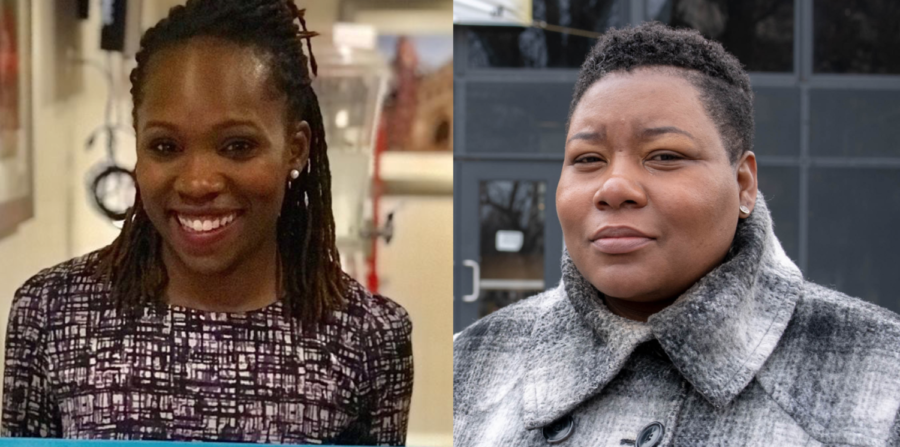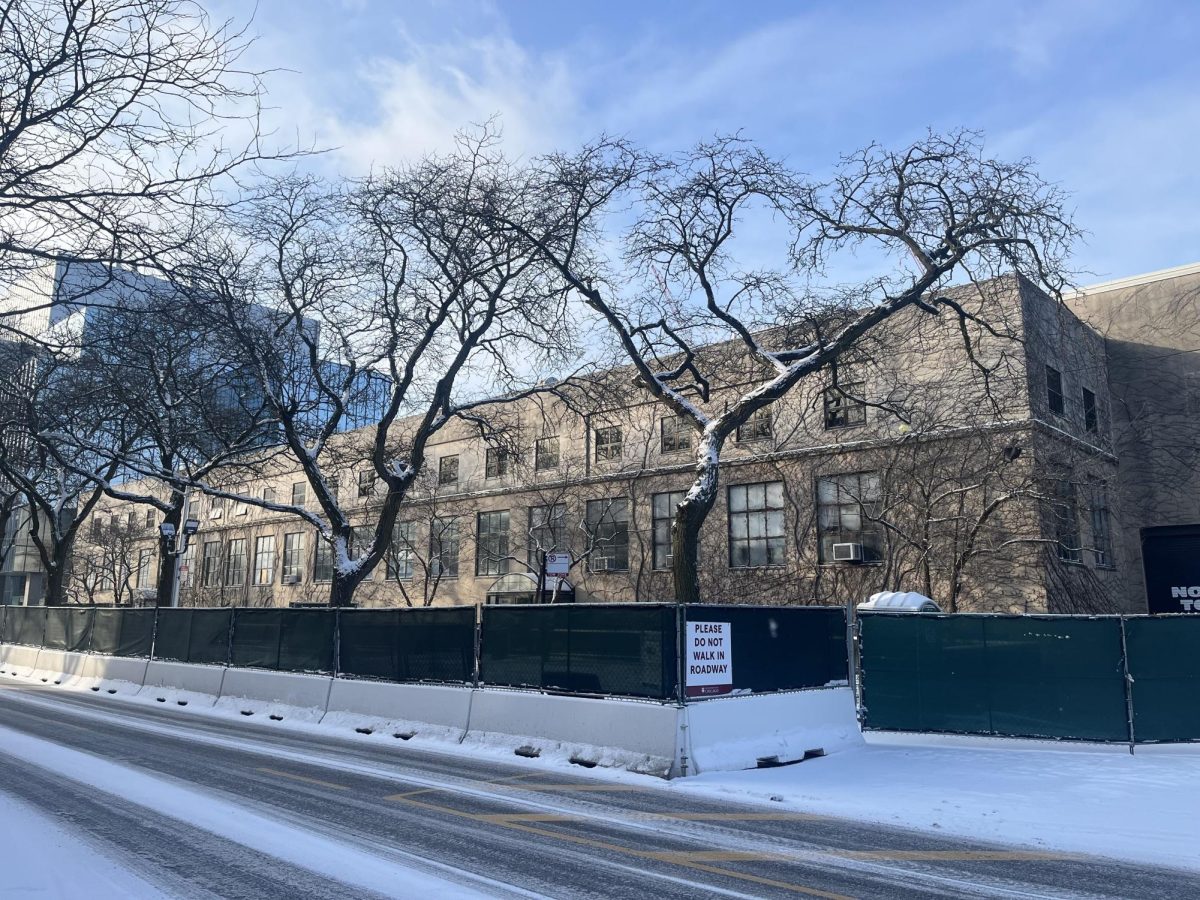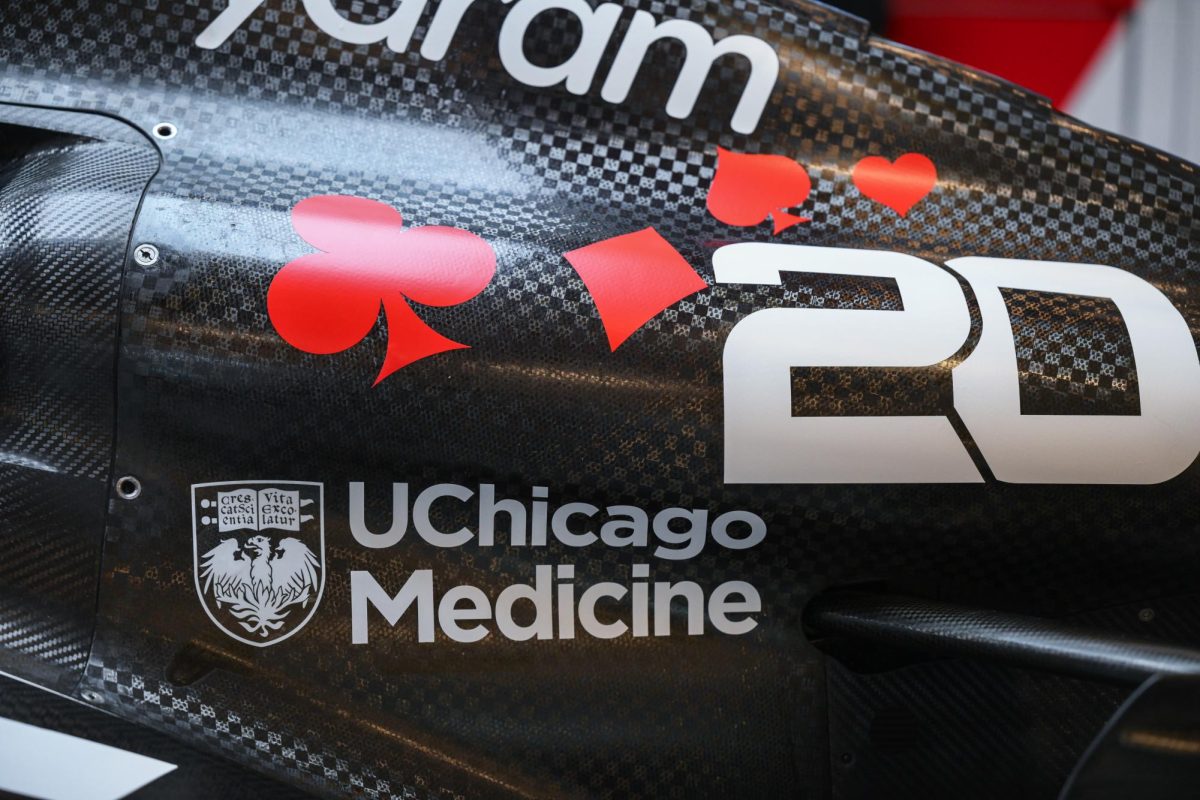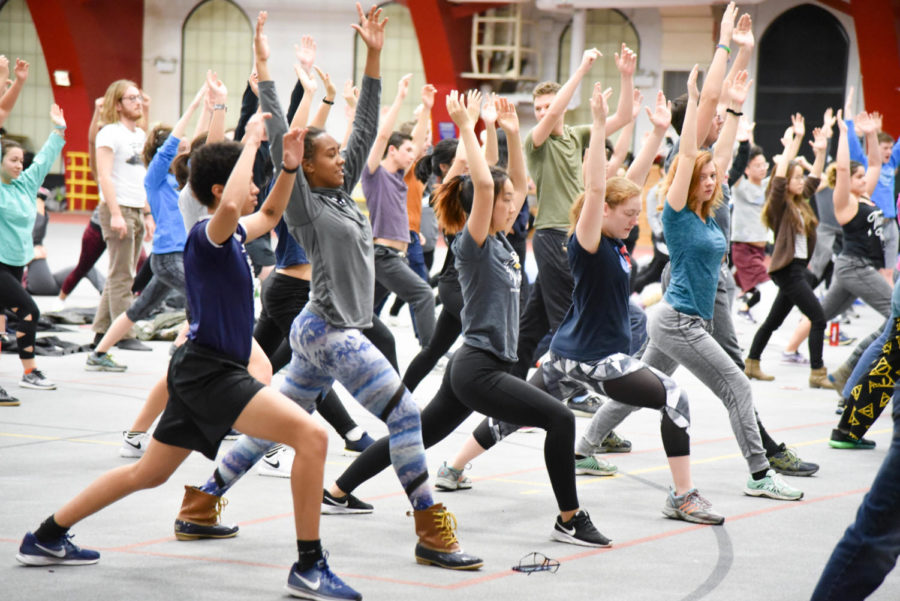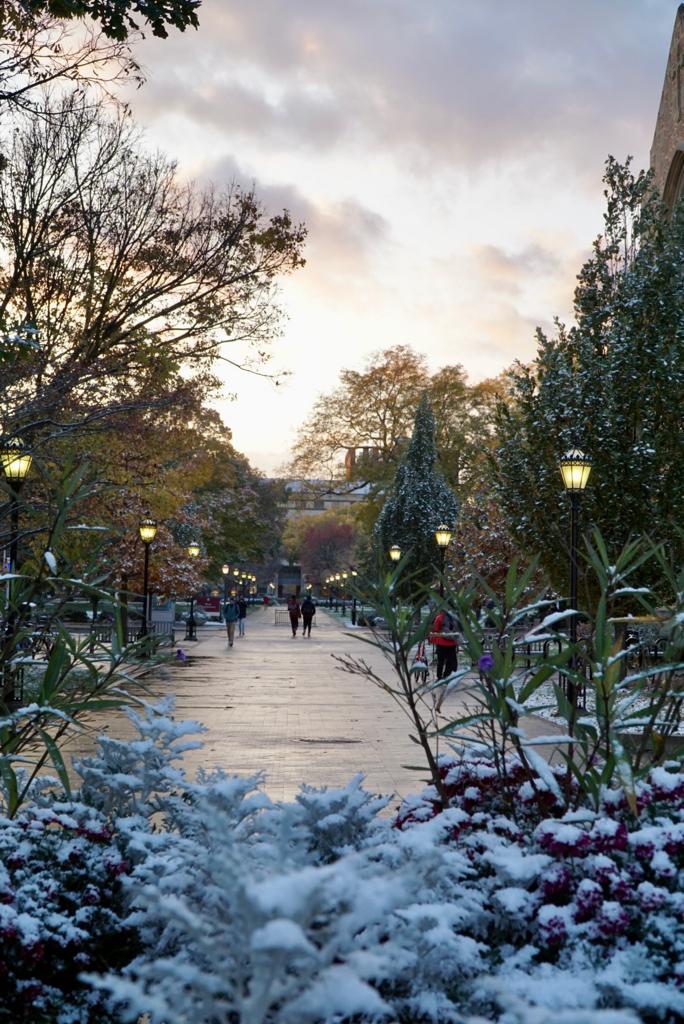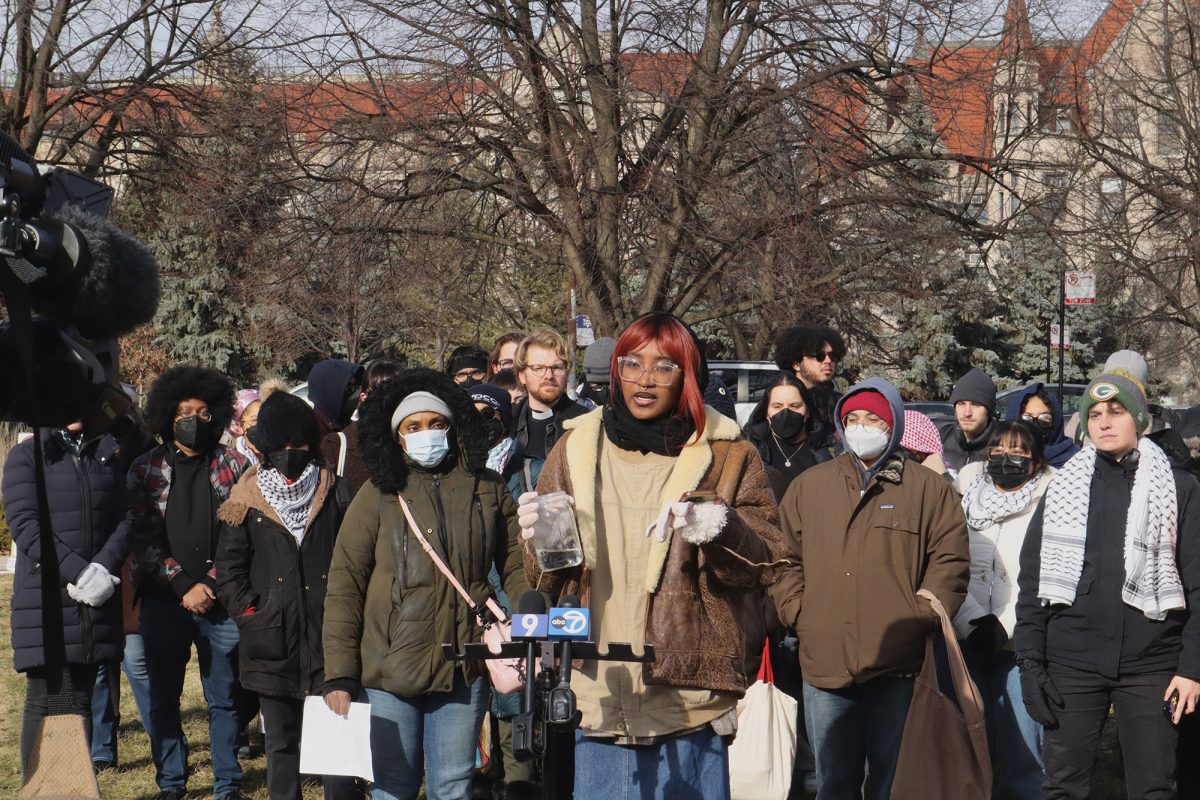Stakes are especially high in the 20th Ward runoff race between Nicole Johnson and Jeanette Taylor: Incumbent 20th Ward Alderman Willie Cochran resigned last week after pleading guilty to a corruption charge, and so the runoff winner could potentially assume office soon after the runoffs instead of on the slated date of May 20.
Johnson, a 29-year-old Englewood native, previously worked as a third-grade math teacher and a data and communications manager at Teamwork Englewood, a nonprofit aimed at bolstering economic growth in Englewood. Taylor, a 43-year-old Woodlawn resident, is an activist who helped lead a hunger strike in response to the announced closure of Dyett High School in 2015 and also campaigned for the University to establish its trauma center.
Both candidates have emphasized personal experiences that they say inspired their activism. At aldermanic forums and on her campaign website, Johnson has discussed the time when she first came close to being caught in open gunfire. Taylor, meanwhile, said that she experienced residential displacement firsthand in being forced to move out of Bronzeville seven years ago when rents suddenly increased.
Here’s where the two candidates stand on the issues most pressing in the 20th Ward.
Campaigning by Geography
In the February general elections, Taylor led the race with 29 percent of the vote, with Johnson at 22 percent. A diagram of the voting breakdown by precinct, published by South Side civic journalism organization City Bureau reveals that Johnson won a majority in most precincts in and around Englewood and West Englewood, while Taylor saw majorities in most Woodlawn and Washington Park precincts. In separate interviews, both candidates acknowledged that the split could have had to do with their own local ties.
“Nicole is born and raised in Englewood, so I’m not shocked,” Taylor said. “I’ve done some work in Englewood, but a lot of my advocacy work has been not only Kenwood-Oakland, but Woodlawn.” Taylor previously worked with the Kenwood-Oakland Community Organization to lead the Dyett High School hunger strike in Washington Park, which was successful in reopening the neighborhood school after a 34-day effort.
Johnson echoed Taylor’s sentiment, adding that Taylor’s heavy union support east of Englewood allowed for “a lot of ground that [Taylor’s campaign] could cover faster than [Johnson’s campaign] could before election day.”
When asked what they would do in order to flip the regions that they did not win majorities in, Johnson in particular mentioned that she would be appearing at several events in the Woodlawn area, such as a moderated debate she attended at the Woodlawn AKArama Community Center on Sunday.
Similarly, Taylor said that, if she were elected alderman, she would regularly meet with constituents about policy, adding, “It’s to hold me accountable. I don’t make a decision without the people in the community, period.”
Housing Reform and the University as an Asset
Both candidates also said that they would connect with the University of Chicago in an effort to expand resources in the 20th Ward.
Johnson said that she would coordinate with the University and the Chicago Tourism Bureau in order to promote tourism in the 20th Ward community.
“I want to put the 20th Ward on the Chicago Tourism Bureau so that when people go to the concierge at the hotel and they ask, ‘Well, what can I do around the OPC, or around the [Museum of Science and Industry]?’, it’ll be, ‘How about 63rd and Cottage Grove?’, and we’ll capitalize on new traffic that’s coming to the region,” said Johnson.
She also mentioned using the Polsky Center to incubate local businesses, saying, “I’ve talked to the University about these ideas.”
Both candidates also favor closing the loophole in the Affordable Requirements Ordinance (ARO) that allows developers to pay a $100,000 fee in lieu of allocating 10 percent of the units they build to low- and middle-income housing.
“I’m also meeting with students at the University of Chicago, who are in policy, for us to look at that policy and change it,” Taylor added.
Johnson emphasized the importance of changing monolithic perceptions surrounding affordable housing, in order to get more people on board with expanding it citywide.
“In the 45th Ward, when [former alderman] John Arena wanted to bring affordable housing, people said, ‘No, we don’t want this. It’s going to bring violent people here,’ because the assumption is that people who need affordable housing are poor and they’re violent, and, most often, they’re Black,” Johnson said.
“So, we need to shift what affordable housing is, and who needs it, so that it’s not just poor Black people, it’s also highly educated millennial people who move to Chicago,” Johnson added. “There’s a lot of opportunities here, but housing is very expensive for them.”
Campaign Finance
Taylor has received a significant portion of her funding from unions and other labor groups, with the Chicago Teachers Union being her biggest donor at over $60,000, and United Working Families and the United Working Families political action committee contributing over $45,000 in total.
Johnson, meanwhile, has garnered donations from a wider array of sources, including Chance the Rapper, the CEO of multi-state medical marijuana corporation Green Thumb, who has frequently donated to liberal politicians like mayoral candidate Susana Mendoza; and Timothy Schwertfeger, former CEO of investment firm Nuveen Investments, who previously donated to former Republican Illinois governor Bruce Rauner’s campaign.
When asked whether she is worried that receiving money from some donors who typically donate to conservative candidates may be concerning to voters, Johnson said, “I have over 800 individual contributors, ranging from $5 to $5600. Over 75 percent at this point are of $250 and less.” She added, “These are scholarship donors who have paid my tuition, helped me get to an internship, paid for books.” Schwartfeger is the founder of Chicago Scholars, a scholarship program in which Johnson participated.
Johnson went on to say, “I’ve gone to [the University of Michigan, National Lewis University, and the University of Pennsylvania], and I’ve learned how to network and cultivate relationships. I’ve learned how to leverage my relationships to aid me, to support whatever I’ve got going on right now. So…it’s called into question, because you don’t really see Black women from Englewood doing this.”
Proposed South Suburban Airport
When asked about generating revenue for the city and the ward, Johnson discussed the proposed South Suburban Airport between University Park, Illinois, and Peotone, Illinois. While the idea has been circulated for decades, the site was officially granted Federal Aviation Administration (FAA) approval in 2002, and several firms have expressed interest in building the facility in recent years.
“It’s a suburban airport, but it’ll have economic impact that’ll reverberate throughout the city as well as the state. Because the 20th Ward is right off a Metra stop, the one that goes to University Park, there’ll be an extension that goes to the airport. So, that’ll be conveniently located to support people who will vie for jobs and opportunities that are related to the airport,” said Johnson.
She also mentioned that the airport has high potential for profit due to interstate travel, saying, “Chicago, and in general the entire state, is regarded as the transportation hub of the nation because we’re in the center, because we’re easily accessible—train, air, road—so if we’re able to rely on a major industry, which is transportation, we will have jobs that are able to withstand the changes in the market.”
When asked about the airport, Taylor said, “I don’t disagree with the [idea], but I haven’t looked into it enough.”
Marijuana Legalization
Both candidates expressed support for marijuana legalization as an economic engine, as well as restorative measures for people incarcerated for nonviolent drug offenses. Both mayoral runoff candidates, Lori Lightfoot and Toni Preckwinkle, support legalizing marijuana, though legalization would require state approval and would likely take years to develop.
“You can’t have one without the other; it doesn’t make sense,” Taylor said, referring to the dual emphasis on legalization and restorative measures. “It’s really a target [on] the Black and Latino community: When you think of all these young people who’ve been locked up for the selling of marijuana, and then you turn around and legalize it, and they’re stuck in jail for what you just legalized, it doesn’t seem fair.”
Taylor then went on to note some specific avenues to direct the increased revenue, saying, “Our schools need another funding source. They haven’t done well on property taxes. They need to get off the property taxes when it comes to funding schools.”
Johnson added that the revenue should be redirected to communities that have been most affected by the criminalization of marijuana.


